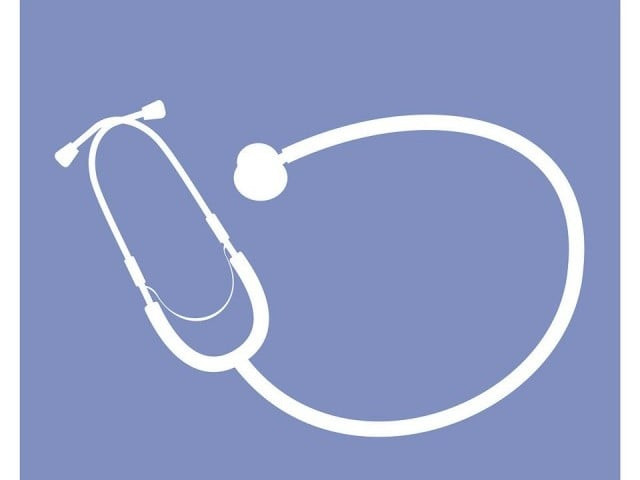Bureaucratic control: ‘MTI Act 2015 introduced with mala fide intentions’
Lawyers say govt wants greater control over autonomous health facilities

PHOTO: FILE
Arguing over the Medical and Teaching Institutions Reforms Act 2015 (MTIRA) on Tuesday, a panel of lawyers termed the law unconstitutional. They said it was introduced to give the bureaucracy greater control over “autonomous” health facilities.
A larger bench headed by Peshawar High Court Chief Justice Mazhar Alam Miankhel was hearing petitions filed by Pakistan Medical Association President Dr Hussain Ahmad Haroon, All Pakistan Paramedics Association Council and other representative organisations of the medical community.
Only the big four
Advocate Mian Mohibullah Kakakhel, representing Dr Haroon, commenced his arguments and told the bench the act was legislated with mala fide intentions to strengthen bureaucracy’s control over doctors. He argued there were 10 medical teaching institutions in Khyber-Pakhtunkhwa, while the act applied to only four of them – Lady Reading Hospital, Khyber Teaching Hospital, Hayatabad Medical Complex in Peshawar, and Ayub Medical Hospital Abbottabad.
He said these were the province’s biggest institutions and imposing the act on just the four of them was proof of the government’s ulterior motives. “The act was withdrawn from Bacha Khan, Gaju Khan, Bannu and Gomal medical institutions through a notification and not an amendment. The law was not implemented at the Nowshera and Saidu Sharif medical institutions,” contended Kakakhel.
The lawyer informed the bench that most members of the boards of governors were not doctors and belonged to different fields such as banking. He argued they all had affiliations with the chief minister, ministers or the K-P Assembly speaker in one form or another.
Besides, the members who are doctors are also practising abroad, he argued. Kakakhel said the board should consist of people from the medical profession who understand the technicalities at hand.
He also questioned the appointment procedure. The counsel pointed out that under Section 9 of the MTI Act 2o15, the appointment criteria for a medical director was based on merit and seniority, while the Civil Servant Act 1973 defined the same as seniority and fitness for the post.
He pointed out the criteria differed in two acts and questioned if the board would decide over the merit of doctors. If so, based on what criteria, he asked.
“The act does not give protection to senior officials in the medical profession who can be removed at any time,” he argued.
Advocate Mushtaq Tahirkheli, representing petitioner Dr Iftikhar, told the bench laws of a similar nature were introduced in 1999 and 2002. He argued his client was medical superintendent at Ayub Teaching Hospital and was removed from his post by the provincial government in 2007. He said the official was restored by the Supreme Court.
“The bureaucracy lost its power after the apex court’s decision,” he highlighted. Tahirkheli claimed the government had been searching for excuses to remove his client ever since and managed to do so in March 2015 after introducing this law.
He recalled a retired major was appointed as medical director in his place which was a brazen violation of the rules and regulations.
He said the court was well within its jurisdiction to review acts of this nature.
Tahirkheli said his client was removed under sections 31 and 26 of the MTI Act 2015, while it was not mentioned anywhere that a competent authority could transfer an official under these sections.
The case was adjourned till Wednesday (today).
Published in The Express Tribune, December 2nd, 2015.













COMMENTS
Comments are moderated and generally will be posted if they are on-topic and not abusive.
For more information, please see our Comments FAQ